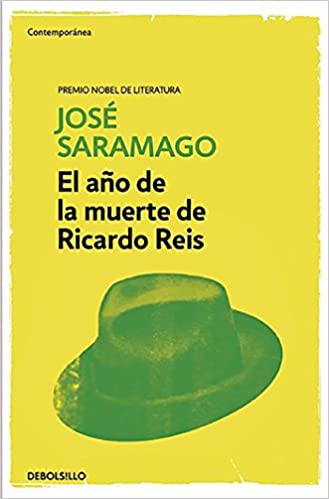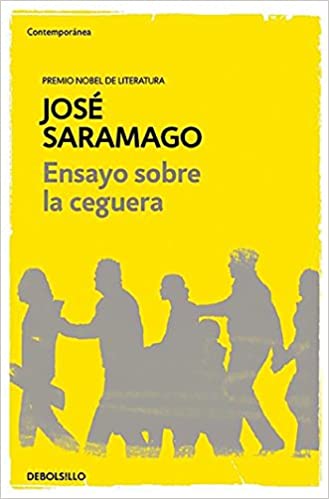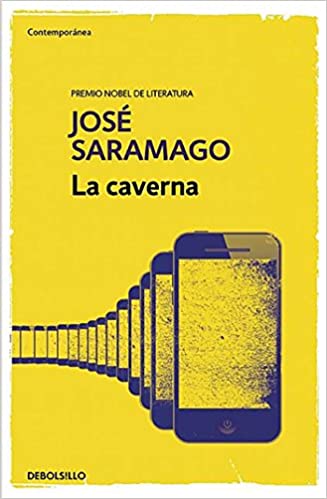The Portuguese genius Jose Saramago he made his way as a fiction writer with his particular formula to narrate the social and political reality of Portugal and Spain under a transformative but recognizable prism. Resources masterfully employed as continuous fables and metaphors, rich stories and absolutely brilliant characters rescued from a world always subdued. Subjected to dictators like Salazar, to the Church, to the whims of the economy ...
Fatalism but undoubted intention to raise awareness and transform. High-flying literature with that great virtue of proposing suggestive stories in the strictly literary sense while at the same time leading to critical thinking, to the awakening of the losing classes always just because, beforehand, in the face of pseudo-revolutionary processes or changes of masks, without further ado.
But as I said, reading Saramago can be a pleasure within the reach of every hobbyist of entertainment literature, only that in the shadow of this author there is, in addition to living stories, an exquisite aesthetic and a background that always connects with the political and the social in its broadest concept.
3 recommended novels by José Saramago
The year of the death of Ricardo Reis
Saramago turns to one of Pessoa's most illustrious heteronyms to overcome the death of the brilliant poet. While Pessoa leaves this world, Ricardo Reis arrives in Portugal. The image is simply brilliant, and in Saramago's hands the narrative proposal reaches mythical heights.
The writer immortalized in his work, in his characters, in his heteronym. The game of transcending, the need for the great sources of inspiration, the geniuses, to never disappear.
Summary: At the end of 1935, when Fernando Pessoa has just died, an English ship, the Highland Brigade, arrives at the port of Lisbon, in which Ricardo Reis, one of the heteronyms of the great Portuguese poet, has traveled from Brazil. Throughout nine crucial months in the history of Europe, during which the war in Spain broke out and the Italian intervention in Abyssinia took place, we will witness the last stage of the life of Ricardo Reis, in dialogue with the spirit of Fernando Pessoa who comes to visit him from the cemetery at the most unexpected moments.
It is the era of fountain pens, Pilot radios, Hitler Youth, topolinos, in an Atlantic and rainy Lisbon whose enveloping atmosphere becomes the true protagonist of this fascinating narrative experience.
The year of the death of Ricardo Reis is a lucid meditation, through a poet and a city, on the meaning of an entire era.
Essay on blindness
One of the most beautiful and chilling metaphors in world literature. The one that we can consider as the main of the senses as a paradigm of the reality that is offered to us from power.
There is no more blind than the one who does not want to see, as they say. A few drops of surrealism, a transcendental fantasy to open our eyes and force us to look, see and be critical.
Summary: A man stopped at a red light suddenly goes blind. It is the first case of a «white blindness» that expands in a fulminant way. Incarcerated in quarantine or lost in the city, the blind will have to face what is most primitive in human nature: the will to survive at any cost.
Essay on Blindness is the fiction of an author who alerts us to "the responsibility of having eyes when others lost them." José Saramago traces in this book a terrifying and moving image of the times we are living in.
In such a world, will there be any hope? The reader will know a unique imaginative experience. At a point where literature and wisdom intersect, José Saramago forces us to stop, close our eyes and see. Recovering lucidity and rescuing affection are two fundamental proposals of a novel that is also a reflection on the ethics of love and solidarity.
The cave
Changes, each time the changes do not assail in a more precipitous way, without the capacity to respond. Changes in mainly social structures, at work, in the way of interacting with the administration, in the way of interacting with us. About the changes and about his possible alienation.
Summary: A small pottery, a gigantic shopping center. A world in rapid process of extinction, another that grows and multiplies like a game of mirrors where there seems to be no limit to the deceptive illusion.
Every day animal and plant species are extinguished, every day there are professions that become useless, languages that stop having people who speak them, traditions that lose their meaning, feelings that turn into their opposites.
A family of potters understands that they are no longer needed by the world. Like a snake that sheds its skin so that it can grow into another that later will also become small, the mall says to the pottery: "Die, I no longer need you." The cave, a novel to cross the millennium.
With the two previous novels ¿Essay on Blindness and All Names¿ this new book forms a triptych in which the author writes down his vision of the current world. José Saramago (Azinhaga, 1922) is one of the best known and most appreciated Portuguese novelists in the world. Since 1993 he lives in Lanzarote. In 1998 he received the Nobel Prize for Literature.



